
A z-Tree Course
4: Simple 2-player Games
Matteo Ploner
Università degli Studi di Trento
A symmetric coordination game
A symmetric Coordination Game
| A | B | |
|---|---|---|
| A | 10, 10 | 0, 0 |
| B | 0, 0 | 10, 10 |
- Consider a simple 2-player Coordination Game
- Choosing the same action leads to a positive outcome
- Perfectly symmetric game
- Roles (Row/Column) are not relevant
- 2 actions available
- A/B
Initialize Variables
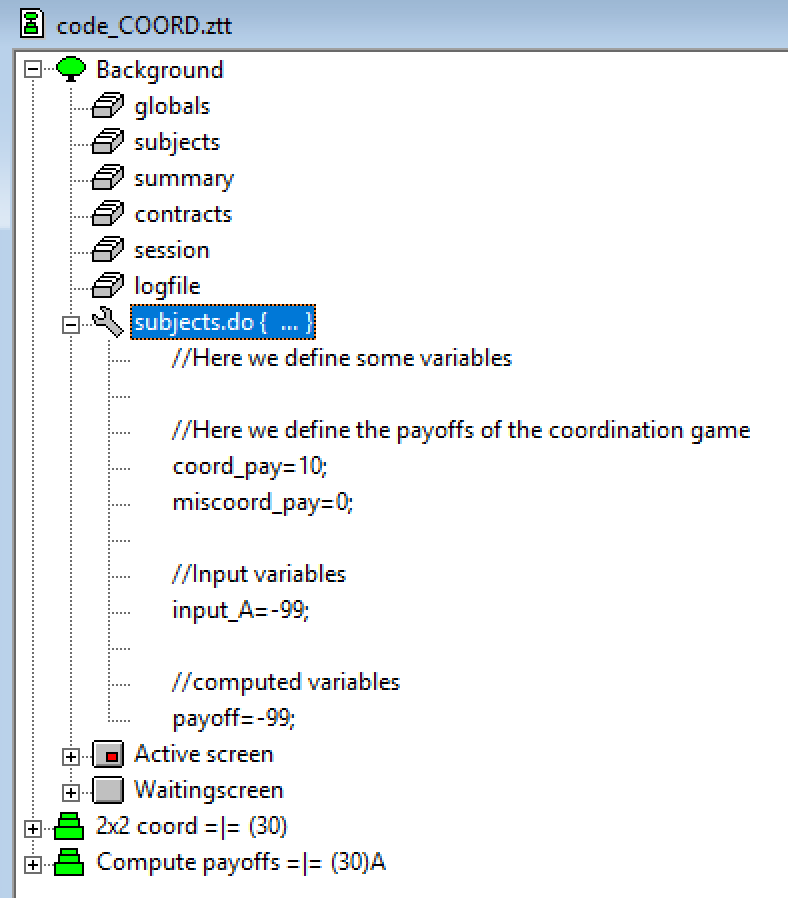
- We write a program
-
//Here we define the payoffs of the coordination game coord_pay=10; miscoord_pay=0; //Input variables input_A=-99; //computed variables payoff=-99; - We define the payoffs when coordinating and when not
- We initialize (-99) the main input variable (input_A)
- Dichotomous variable
- We initialize the payoff variable (payoff)
Game Grid


- We define the game grid
- Container box
- We populate it with payoffs
- We only have two combinations [0,0] | [10,10]

The choice
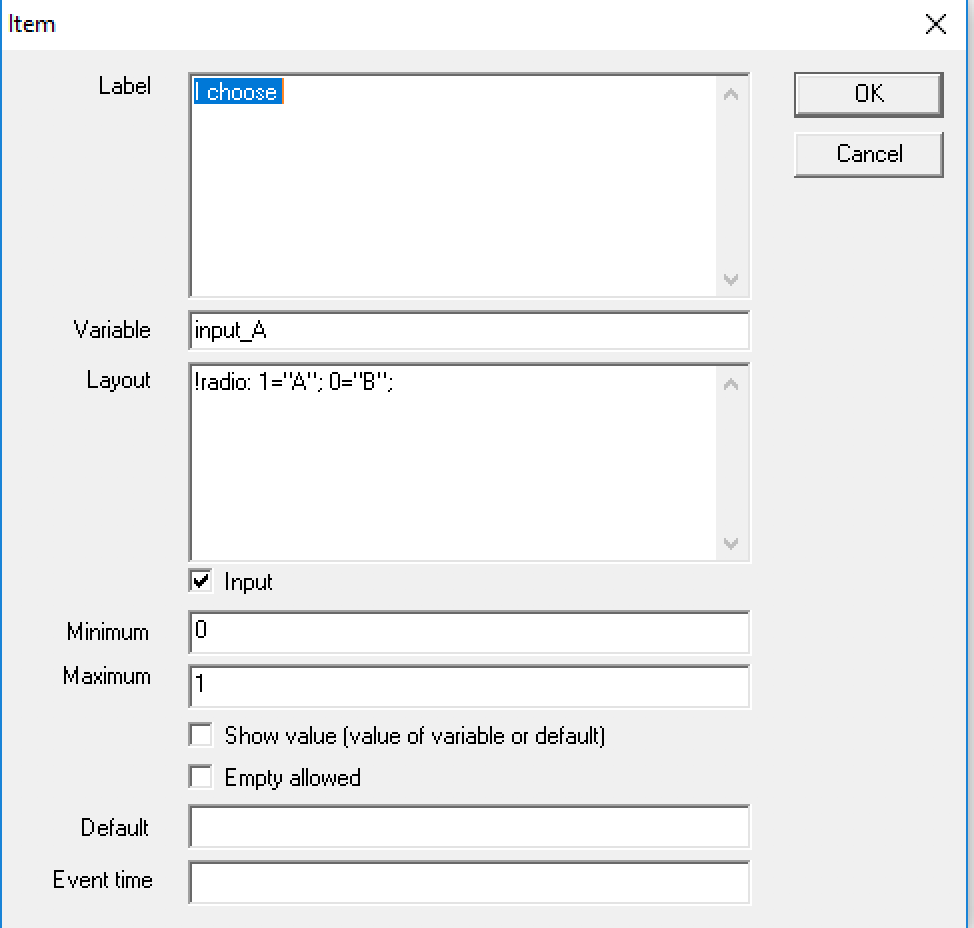
- Our main obervational unit
- input_A
- Dichotomous variable
- Collected via a radio input

Compute Payoffs
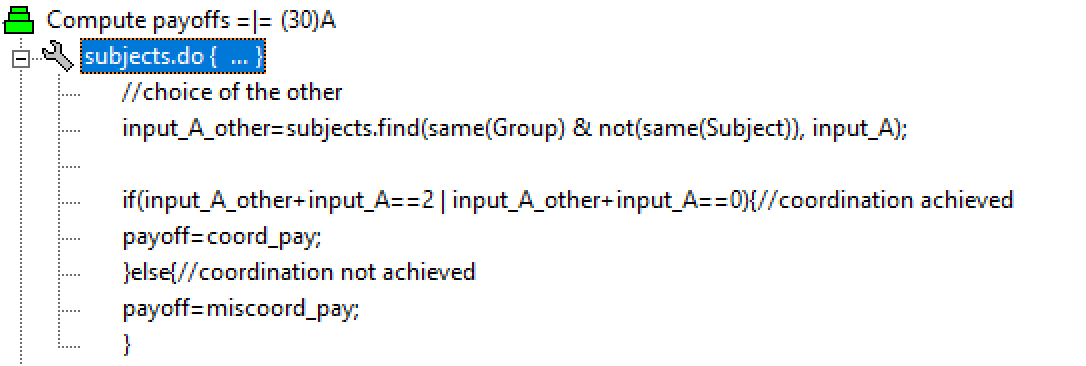
- 1) We need to retrieve the information of the other
-
input_A_other=subjects.find(same(Group) & not(same(Subject)), input_A); - Check the matching of choices and comoute payoffs accordingly
-
if(input_A_other+input_A==2 | input_A_other+input_A==0){//coordination achieved payoff=coord_pay; }else{//coordination not achieved payoff=miscoord_pay; }
Payoffs
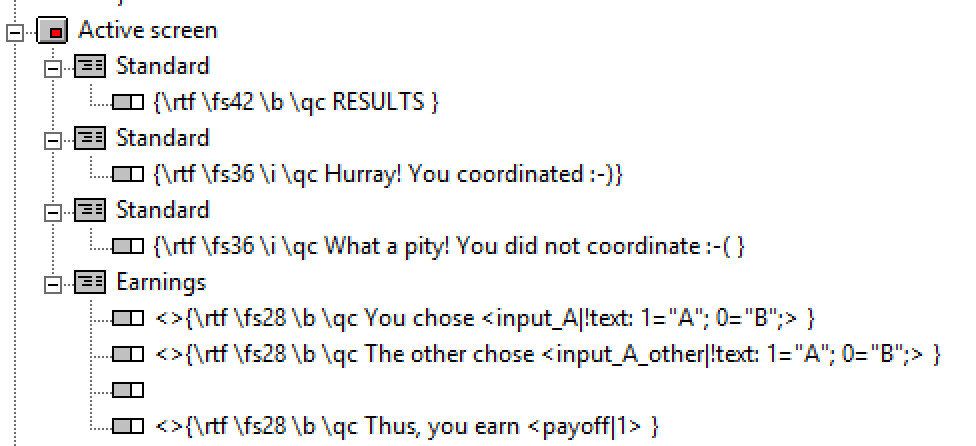
- We condition output upon coordination
- Different messages to those who coordinated and those who did not!
Payoffs
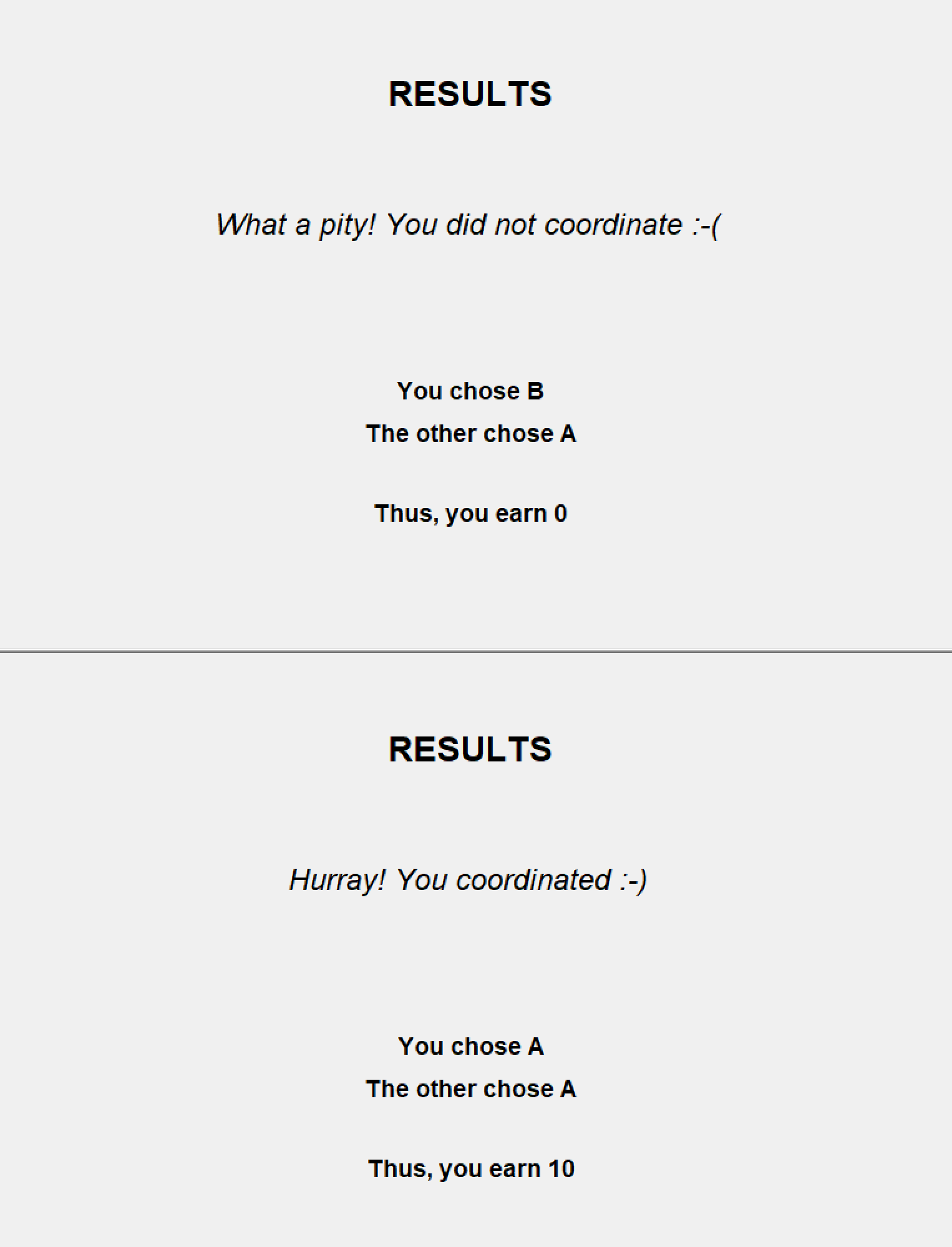
- Provide participants with full information
- Actions of both players
- Payoffs
The Ultimatum Game
Description of the Game
- A well-known 2-player sequential game
- The first mover (Proposer) proposes a share of a pie
- A second mover (Responder) decides whether to accept it or not
- When the proposal is accepted, the pie is shared as proposed
- When the proposal is rejected, both parties earn zero
Preliminaries
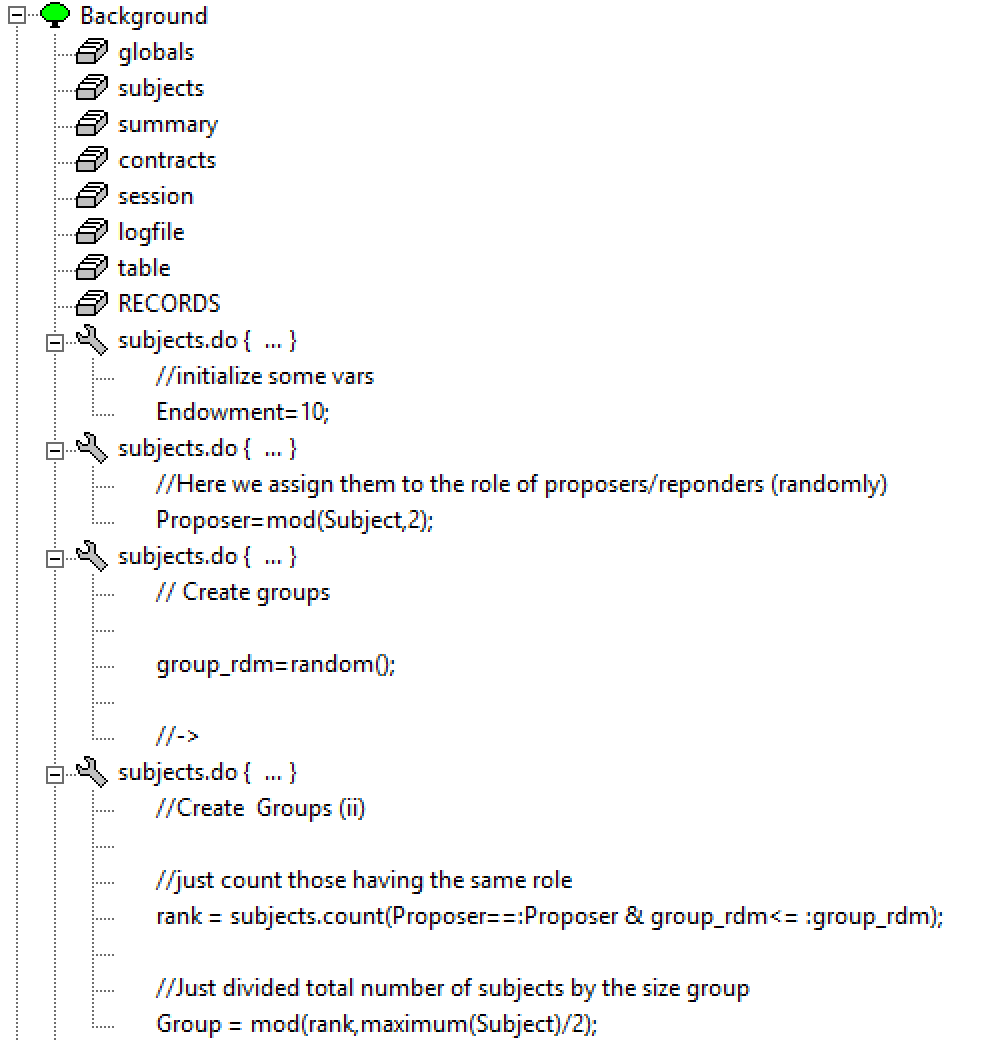
- We define the endowment (size of the pie)
- Groups and roles are randomly assigned
- We assign the roles using subject number (cubicle)
- Odd are Proposer, Even are Responder
The Proposer's stage
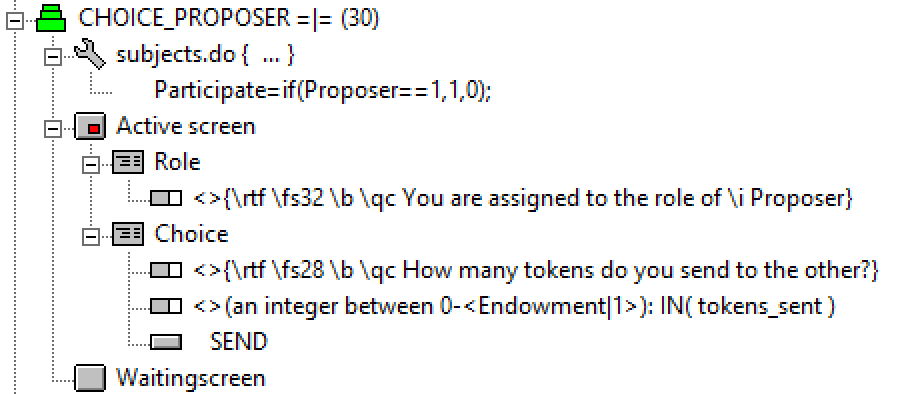
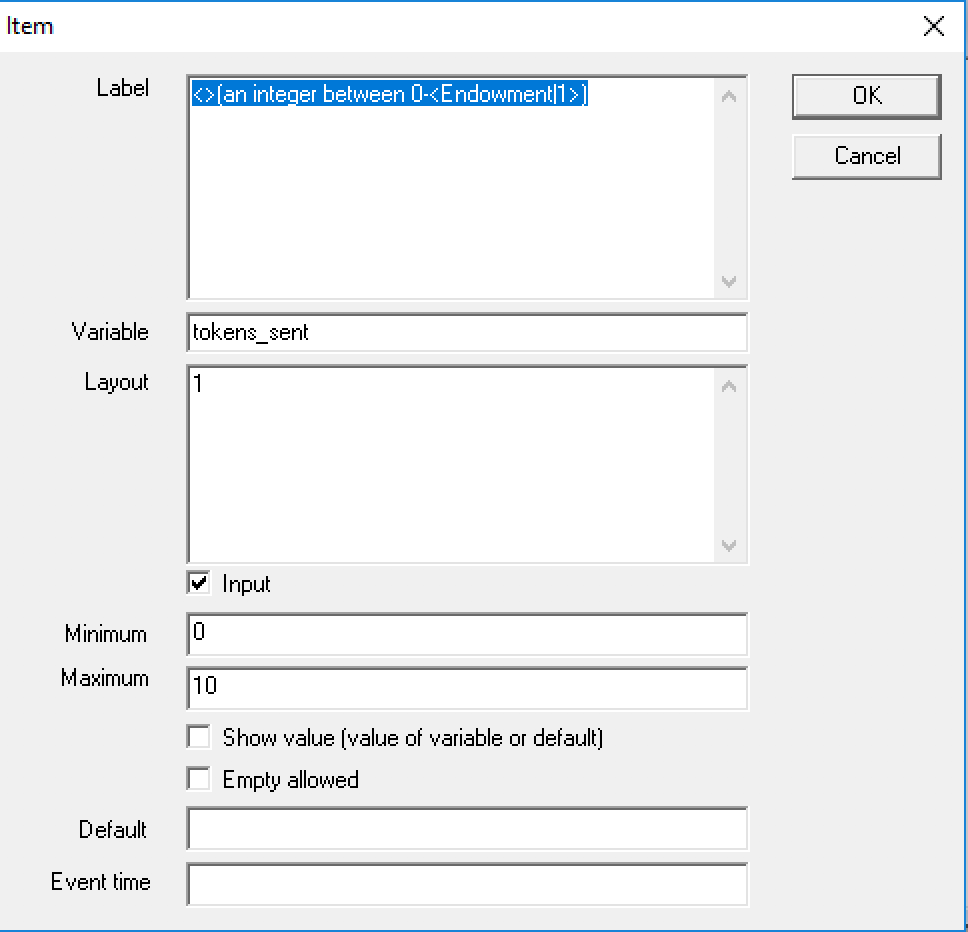
- The Responders do not participate in the Proposer's stage
- The input format is an integer (tokens_sent)
- Important to set the Minimum and Maximum accordingly
The Responder's stage

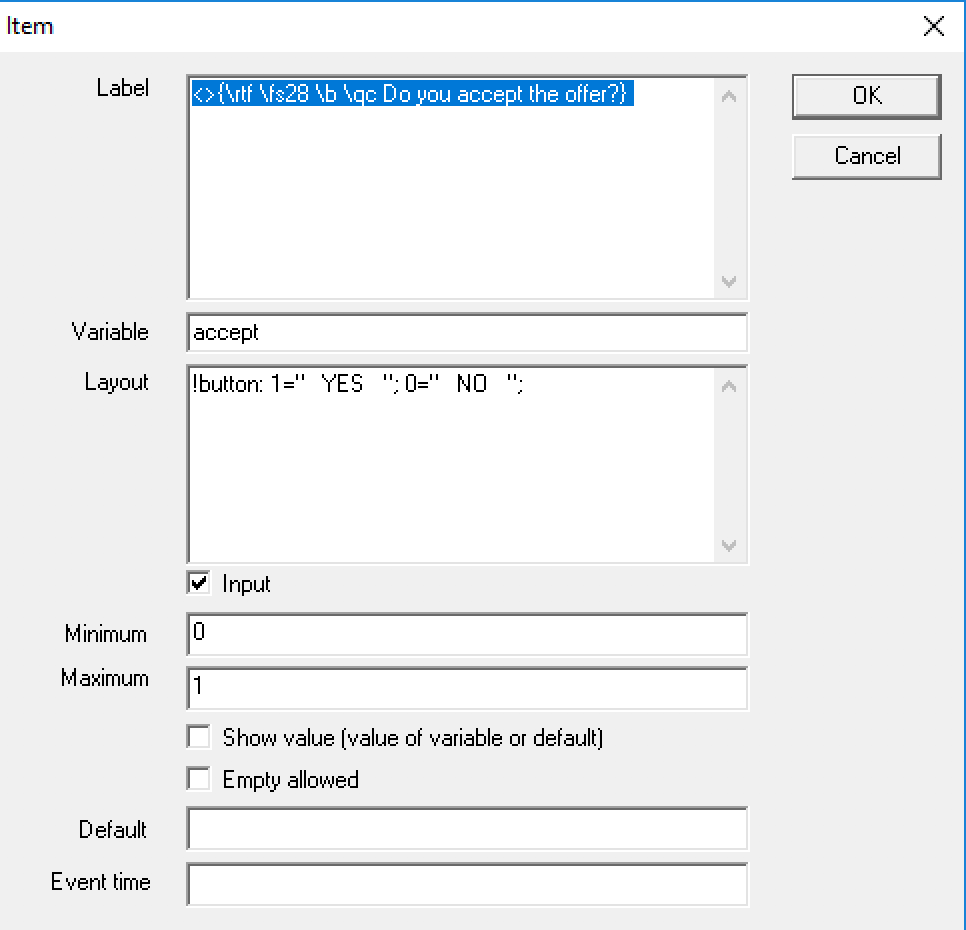
- The Proposers do not participate in the Proposer's stage
- Execute a program to retrieve the tokens sent by the matched proposer
-
tokens_sent_proposer=subjects.find(same(Group) & Proposer==1,tokens_sent); - The acceptance is collected via buttons (Yes/No)
Compute Payoffs

- To compute payoffs (in the payoffs table) we need to retrieve the actions of both parties
- Execute a program to retrieve the tokens sent by the matched proposer
-
if(Proposer==1){ accept_other=subjects.find(same(Group) & Proposer==0, accept); Payoff=(Endowment-tokens_sent)*accept_other; }else{ Payoff=tokens_sent_proposer*accept; } - The acceptance is collected via buttons (Yes/No)
Store Results

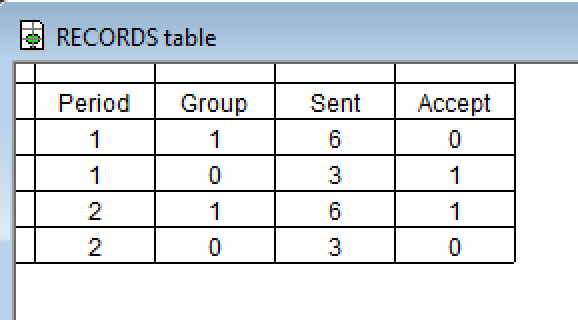

- Results are stored in a newly created Table "RECORDS"
- The program is executed only once for each couple (when the Proposer enters!)
RECORDS.new{ Period=:Period; Group=:Group; Sent=:tokens_sent; Accept=:accept_other; }- Lifetime is Treatment
- All the relevant information is neatly organized for later analysis
Compute Payoffs (alternative)
- Alternatively, you also could first "store" results
RECORDS.new{ Period=:Period; Group=:Group; Sent=:tokens_sent; Accept=:accept_other; }- The, retrieve them to compute payoffs
//retrieve values from RECORDS Offer=RECORDS.find(same(Group) & same(Period), Sent); Accept=RECORDS.find(same(Group) & same(Period), Accept); //compute payoffs if(Proposer==1){ Payoff=(Endowment-Offer)*Accept; }else{ Payoff=Offer*Accept; }
Display Results
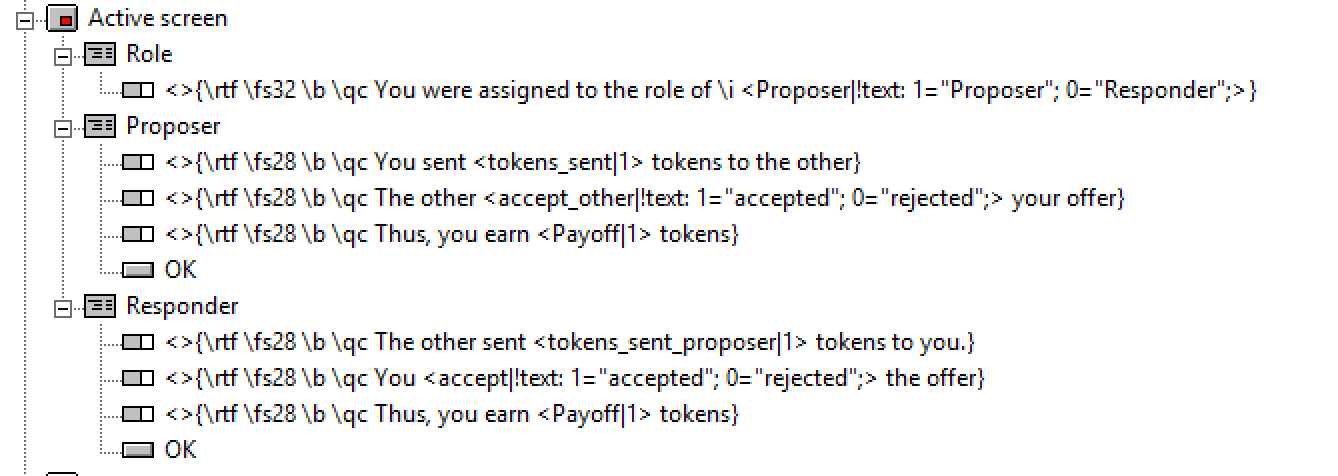

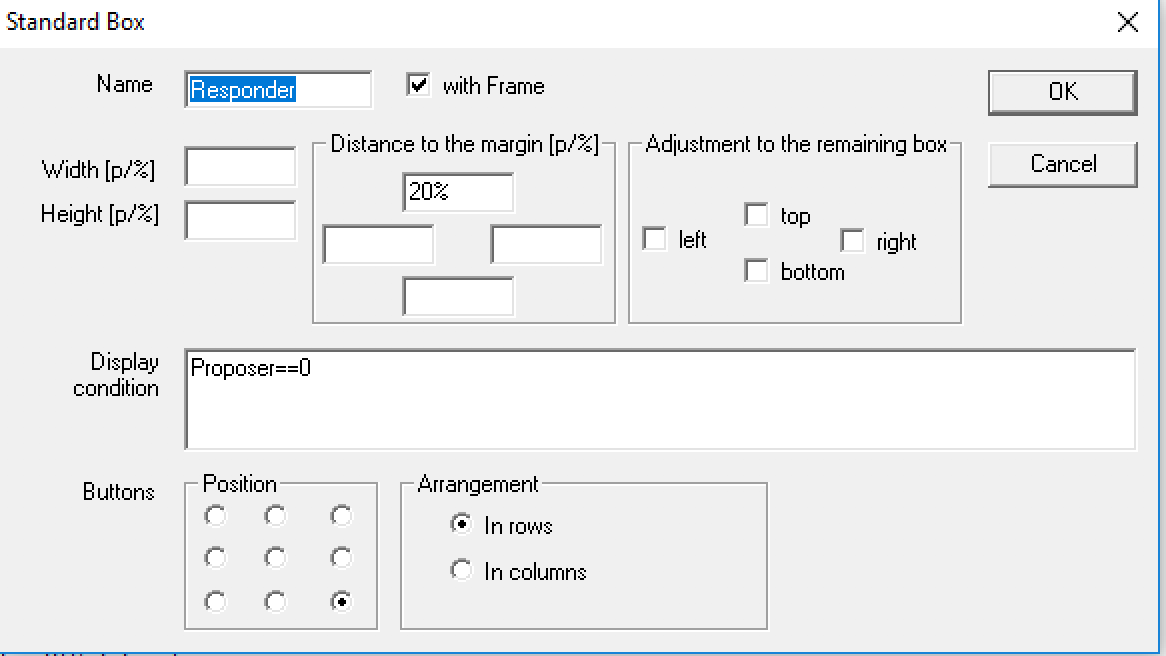
- Give the same information to both, but condition the message according to the role
- Two boxes with conditional display according to the role
Assignment 1
- Take the Coordination Game
- Before playing the game, players can send to the other a free-form communication
- The other player must read it in the same screen he/she is choosing
Assignment 2
- Take the UG game
- Manipulate the consequences of a rejection
- A: rejection has no monetary consequences
- B: rejection has monetary consequences only for the proposer
- C: rejection has monetary consequences only for the responder
- Implement a UG with strategy method
- Responder states A/R for each possible choice, before knowing the choice of the Proposer
-
Choice of the other 0 1 2 3 4 5 6 7 8 9 10 Your choice - HInt: Use arrays!
